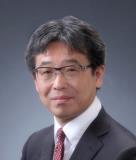Keynote Speaker

Prof. Hisayoshi Hayashi
Professor of Biosphere Resource Science and Technology Program, Faculty of Life and Environmental Sciences, University of Tsukuba, Tsukuba, JapanSpeech Title: Field Research Challenging for the Sustainable Development in the 21st Century
Abstract: There are several types of agronomic research, each of which is important for developing efficient, sustainable agriculture. One is field research, in which various crops are cultivated under varied treatments on universities’, experimental stations’ or farmers’ land. It is relatively large-scale research, so it is generally labor-intensive and the work must be carefully controlled in terms of, inter alia, scheduling, participants’ roles, and working procedures. Diverse factors, such as soil fertility, drainage, field slope, crop residues, weeds, and both the composition and cover of surrounding vegetation affect crop growth, so it is impossible to ensure that growth conditions are identical in each experimental plot. Thus, sufficient replicates are essential to account for effects of natural variation on crop production and yield, but increases in numbers of replications increase the laboriousness. Thus, there are generally large variations in field research data. Weather also has strong direct effects on various aspects of field research, for example, working schedules, cultivation periods and crop responses, so reproducibility of the results is low. We can often only cultivate target crops once a year (and even less frequently for biennial or perennial crops) because their growth periods are too long for more frequent cultivation. As their growth is affected by the weather, which varies both infra- and inter-annually, in the experimental fields during these periods, field research should be repeated for at least two years. It also takes a long time to master the specialist skills required for field research. However, field research is important for developing and improving cultivation technology because we cannot change the climate and cultivation environment, especially for food crops. Thus, we need to raise young researchers who can conduct field research efficiently in order to improve agricultural technology and increase both the yields and quality of crops.
Long-term experiments are important for evaluating agricultural sustainability and improving management systems. It is also important to develop ‘model’ experimental fields with stable conditions, and innovative approaches to boost productivity and sustainability. The research team at crop production systems and crop science laboratories in our university is seeking to contribute to such efforts in several ways. Inter alia, we are evaluating effects of major nutrients on yields of upland crops in a four-year eight-crop rotation system. We have also just started a new project to elucidate much more comprehensively our planet’s microbial ecosystem. This will involve development of a novel ‘post-Koch microorganism isolation technique’ that integrates science, engineering, and microbiology to find microorganisms that have not been previously isolated. It is expected that yield responses in long-term fertilization plots will be affected not only by major nutrients but also by intricate associated interactions of diverse macro- and micro-organisms acting not as a collection of a single organisms but as an ecosystem.
Biography: Dr. Hisayoshi Hayashi graduated at University of Tsukuba in 1980. He worked as an extension officer for one year in Nagano Prefecture and moved to Chushin Agricultural Experiment Station (CAES). He belonged in the department of field crop cultivation for six years in CAES and move to University of Tsukuba. He is conducting Crop Production Systems laboratory as a professor. His research focused on the development and evaluation of sustainable crop production systems with conscious of environment load on major crops and regional special crops for example buckwheat (Fagopyrum esculentum Moench). He has been working as a principal of Junior and Senior High School at Komaba, University of Tsukuba since 2014, too.